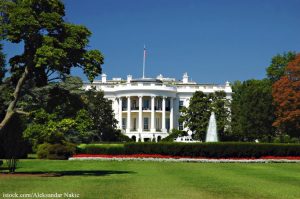The White House Office of Management and Budget (OMB) is delaying the release of four food safety rules central to the Food Safety Modernization Act (FSMA) of 2010. Several legislators and consumer groups have called on the government to release these rules so they can be commented on and become law.
 Food Poisoning Bulletin talked to Chris Waldrop, Director of the Food Policy Institute at the Consumer Federation of America, a nonprofit association that advances consumer interests through research and advocacy, about this issue.
Food Poisoning Bulletin talked to Chris Waldrop, Director of the Food Policy Institute at the Consumer Federation of America, a nonprofit association that advances consumer interests through research and advocacy, about this issue.
We asked why the rules have been delayed. Mr. Waldrop said, “it’s a closed process, so we really don’t know what’s going on. OMB is still working out some of the questions for the FDA.”
“The primary intention of the Food Safety Modernization Act and these delayed rules is to protect consumers against foodborne illness. Waldrop said, “the rules address four areas. The first two require food facilities and animal feed facilities to put into place controls where they identify hazards and take steps to reduce or eliminate those hazards. The third is the foreign supplier verification program, which is one piece of larger import provision rules.”
He continued, “this program holds the importer accountable for making sure his supply chain is producing food safely. The fourth rule is the produce safety rule, which makes sure farms and growers are using the necessary precautions and measures to reduce contamination on the farm. This is important because there has been a whole assortment of outbreak linked to fresh produce.”
We asked whether better import guidance could have prevented the current Salmonella Bareilly outbreak. Waldrop answered, “it’s possible. We don’t know where the contamination occurred. The intent for that guidance is for the importers to have a better understanding of how the food is handled, since it’s important we have a sense of where the supplies come from and what’s being done to food products.”
Funding the FDA so these rules work is critical. “Funding is a huge challenge and a huge issue,” Waldrop stated. “Success of FSMA depends on funding. The FDA needs the resources to be able to implement and enforce rules. The inspection piece of the enforcement component is very important, on the domestic and imported sides.
“Imports are the bigger challenge because so many companies are importing food under the FDA jurisdiction,” he continued. “It’s impossible to inspect every single importer and facility. We have to rely on other officials and other mechanisms to ensure food safety.”
We asked if there are other rules mandated by FSMA that would help make imported foods safer. “The voluntary qualified importer program (VQIP) is critical,” he said. “That is a fast track for importers, provided they give the FDA information about where their supplies come from, and the steps the importers are taking to ensure the food is safe.
“The certification component by foreign government for certain high risk foods is also critical,” he added. “We need assurance that foods have been produced to meet our standards. This process is easier for some governments than for others.”
Mr. Waldrop has concerns about third party certification. “I have concerns about relying on third party auditors to provide checks and balances. For instance, the peanut butter outbreak of 2009 occurred after a third party auditor gave that company [Peanut Corporation of America] high marks.”
The OMB has said it is going to release the produce rule “soon”. Waldrop said, “‘soon’ is a relative term. We’re anxious to see what the rule is so we can start the process of implementation. Public comments are important. The Produce Marketing Association wants to see the rules. While implementing these rules are going to cost companies money, safe food is an investment in good will and improved consumer confidence.”




